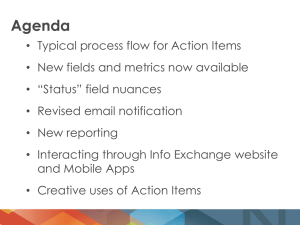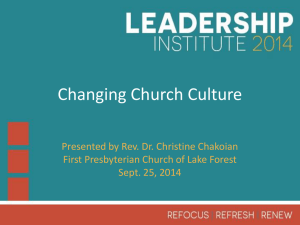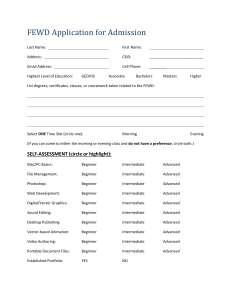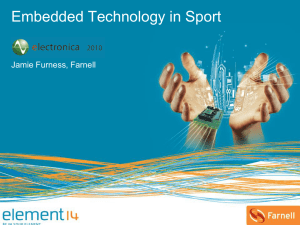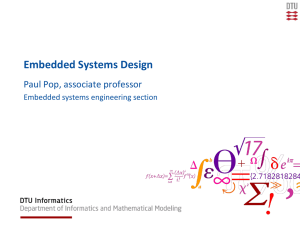Frances Hunt, DERC `Research in Global Learning`
advertisement
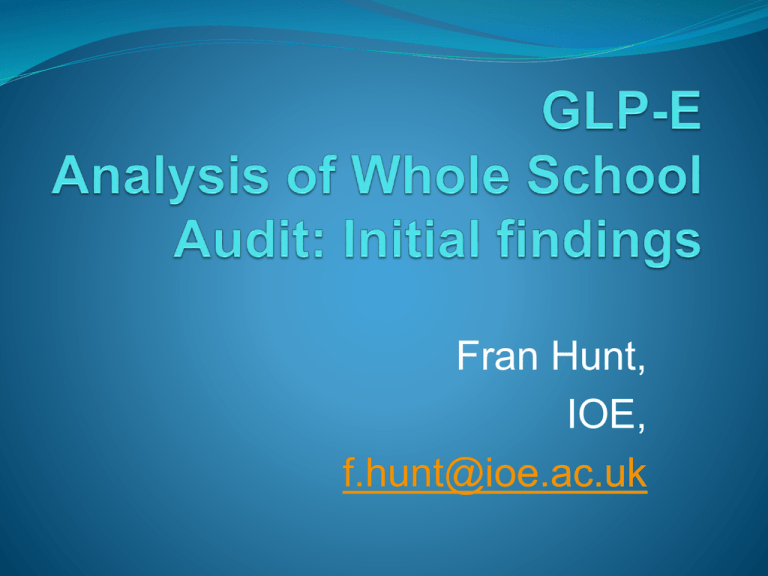
Fran Hunt, IOE, f.hunt@ioe.ac.uk Data collection and analysis Whole School Audit (WSA) - online tool and part of the registration process for schools Asks questions about pupils, teachers, values and behaviour, leadership and community Maps responses against Whole School Framework so schools identified as ‘early’, ‘beginner’, ‘developing’ or ‘embedded’ against criteria Analysis based on 953 schools registered which includes 563 whole school audits completed (Feb 2014) Focus of presentation Which schools have signed up to GLP-E? Why schools have signed up? What schools are already doing? How embedded is global learning within participating schools? Which schools sign up 4% of schools in England have registered (2.5% completed audit). Different types of schools (state, faith, academies) Three times more primary schools than secondary Slightly above average attainment (esp. at secondary level), generally lower than average free school meals and English as Additional Language Higher than average Special Educational Needs (SEN) schools Slightly above average school inspection (OFSTED results) Where schools are – regional sign up 9% 8% 7% 6% 5% 4% 3% 2% 1% 0% 8% 5% 4% 4% 3% 2% 5% 2% 4% Why schools get involved 80% 72% 70% 65% 62% 58% 54% 60% 47% 47% 50% 35% 40% 27% 30% 23% 17% 20% 13% 9% 10% 0% Length of time schools have been doing global learning Length of time Frequency % under three years 96 17 three to five years 108 19 five to ten years 85 15 over ten years It doesn't explicitly work with global learning Not sure 39 7 212 (129) 38 (23) 23 4 563 100 Total Other activities schools are involved in (%) 70% 63% 61% 56% 56% 60% 50% 47% 40% 30% 24% 21% 20% 14% 8% 8% 6% 10% 0% Support to schools in previous two years 500 450 400 350 300 250 200 150 100 50 0 429 390 303 251 208 Yes (N) No (N) 111 52 Development International Education Development Centre Organisation 40 Staff training staff on Global on global Teachers theme Award Pupils’ achievement 0% Pupils' knowledge Pupils' learning skills 20% 37 40% 60% 318 63 80% 100% 153 283 38 143 56 Beginner Early Literacy, numeracy and communication skills Supporting transitions to seconday school Preparation for work 114 299 99 35 Developing Embedded 413 282 66 12 13 95 137 Teachers’ practice 0% Teachers' global knowledge 20% 42 40% 196 60% 80% 229 100% 77 Beginner Early Pedagogic approaches 90 230 170 52 Developing Embedded Support for active global citizenship Cross curricular planning 82 53 229 215 171 153 57 122 Values and behaviour 0% Pupils values 20% 87 40% 60% 266 80% 135 100% 54 Beginner Early Diversity and cultural difference 29 248 178 89 Developing Embedded Pupil voice 138 215 162 30 Leadership and the community 0% school vision 20% 112 40% 60% 217 80% 140 100% 69 Beginner school curriculum supports global learning staff support and professional development engagement with parents, community and external organisations 57 283 134 69 Early Developing Embedded 199 156 172 288 122 44 71 25 Unpicking audit data Criteria with highest proportion of ‘embedded’ responses: cross-curricular planning and developing positive attitudes towards diversity and cultural difference. Criteria with highest proportion of ‘developing and embedded’ combined responses: teachers’ knowledge of global themes. Criteria with highest proportion of ‘beginner’ responses: supporting transitions and staff support / CPD. Unpicking audit data Overall secondary schools map themselves more highly than primary schools; Expert centres map themselves more highly than partner schools. Schools involved in other global learning type activities i.e. ISA, school links and Unicef’s RRSA also map more highly. Next steps Further analysis School visits to explore and understand responses more Use data to feed into GLP development Produce report with fuller set of data in the next month or so (go to www.glp-e.org.uk and look under ‘research’) Final questions How does this data relate to your own experiences? Is there anything that surprises you about the data? Are the gaps in analysis or things we should explore further? Thanks F.hunt@ioe.ac.uk
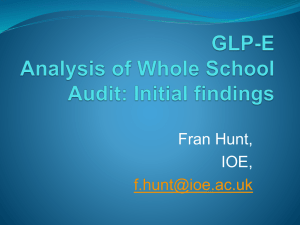
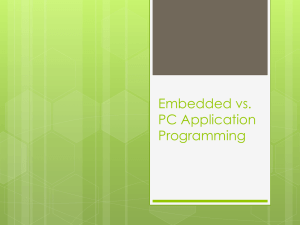



![afl_mat[1]](http://s2.studylib.net/store/data/005387843_1-8371eaaba182de7da429cb4369cd28fc-300x300.png)
